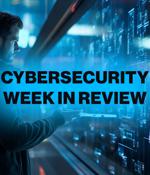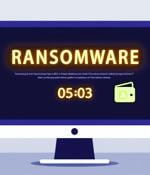Security News

Microsoft is warning of several phishing campaigns that are leveraging tax-related themes to deploy malware and steal credentials. "These campaigns notably use redirection methods such as URL...

Here’s an overview of some of last week’s most interesting news, articles, interviews and videos: How QR code attacks work and how to protect yourself While QR codes are convenient, they also...

QR codes have become an integral part of our everyday life due to their simplicity. While they’ve been around for many years, their use exploded during the COVID-19 pandemic, when businesses...

Everyone knew texted OTPs were a dud back in 2016 Google has confirmed it will phase out the use of SMS text messages for multi-factor authentication in favor of more secure technologies.…

Multiple Russia-aligned threat actors have been observed targeting individuals of interest via the privacy-focused messaging app Signal to gain unauthorized access to their accounts. "The most...

The threat actors linked to the Black Basta ransomware have been observed switching up their social engineering tactics, distributing a different set of payloads such as Zbot and DarkGate since...

Mandiant has identified a novel method to bypass contemporary browser isolation technology and achieve command-and-control C2 operations. [...]

A new tax-themed malware campaign targeting insurance and finance sectors has been observed leveraging GitHub links in phishing email messages as a way to bypass security measures and deliver...

A new wave of QR codes has popped up across UK claiming to share a video of a boyfriend who "cheated" on a girl named Emily last night. Clickbaity or genius? [...]

Threat actors are abusing Microsoft Sway to host QR Code phishing campaigns.